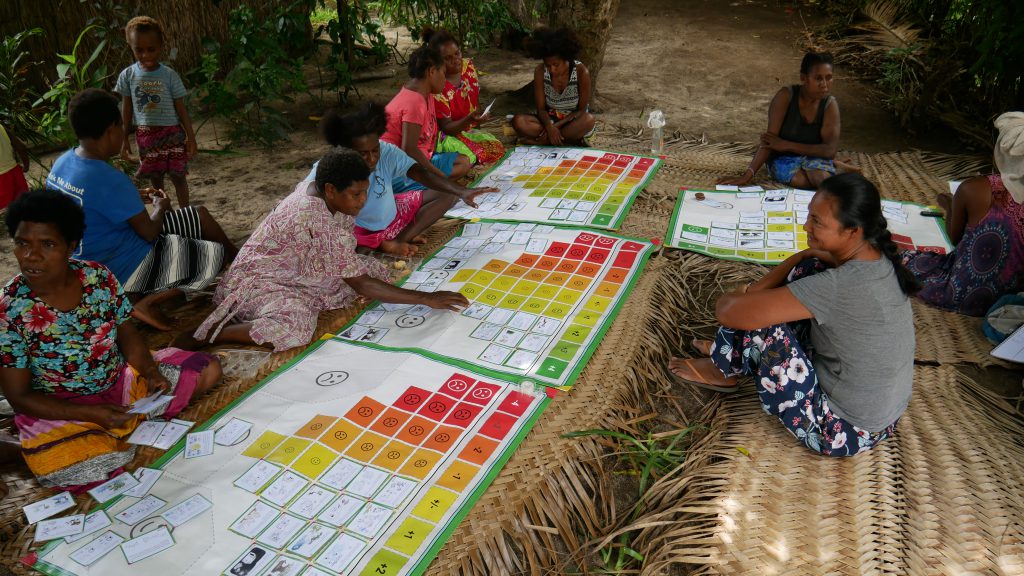
Village communities might have very different expectations and aspirations towards environmental and social change, natural resource management and economic opportunities, which will have important implications on taking an ecosystem based approach to climate change adaptation. This study surveyed the community of Port Resolution, on Tanna, to gain insights into these attitudes.
Approach
We set out to shed light on the following issues:
- To understand constraints and enabling factors for implementation of ecosystem-based adaptation.
- Find discursive commonalities and/or differences to inform how and where development-focused activities can be targeted.
- Identify issues for where there is community consensus, contention or ambivalence.
- Identify language and metaphors best-suited to communicating with community.
We used Q-methodology to reveal discourses, both within a community on Tanna and amongst stakeholders with knowledge of the challenges in the community to ascertain the barriers and enabling factors for implementation of EbAEbA Ecosystem-based adaptation - an adaptation approach to climate- and environmental-change which primarily deploys ecosystems and ecosystem functions to mitigate risks from hazards..
Q is both a quantitative and a qualitative, based on statistical analysis of individuals subjectivity. It looks for correlations amongst subjects’ views; these correlations reflect mindsets that are analogous to the structure of a discourse.
Discourses are considered both external to individuals (they act on people) but are also emergent of collective heuristics of people – people and power structures actively shape them.
Date was collected in the Port Resolution community by a team of researchers, ably assisted by two members of the community. The method of collection is for respondents to rank a series of issues statements from 'most important' to 'least important'.
Conclusions
The following conclusions can be drawn from this study:
- Likely a general preference for climate change adaptation based on ecosystem-based projects that provide indirect adaptation benefits + co-benefits.
- Projects need to be sensitive of the importance of Kastomkastom Kastom is a pidgin word (Bislama/English) used to refer to traditional culture, including religion, economics, art and magic in Melanesia. The word derives from the Australian English pronunciation of 'custom'. Kastom is mostly not written, only passed down through teachings and stories and includes places, stories, objects and animals and plants. resources management and knowledge.
But…
- Projects that support economic development (and challenge Kastom) may experience differences in support based on gender.
- Infrastructure provision and formal institutions (government) are considered unimportant.
Acknowledgements
This research was undertaken through an MOU with the Tafea Provincial Government and under a research agreement with the Vanuatu National Cultural Centre representing the Government of the Republic of Vanuatu and the local community. We are grateful to the Port Resolution community for their permission to undertake this research and for their cooperation, generosity, humour, and hospitality. In particular, we thank our research assistants in Port Resolution, Esther Karrahi and Alfred Iouma. Thanks also to Alan Dan, our Tanna Kastom advisor and community liaison. For the creative illustrations, we thank Sarah Engelhard and for additional research assistance in the field, we thank Johanna Loehr and Wade Hadwen. The research was also supported by a grant to Griffith University from a private charitable trust that wishes to remain anonymous. The donor had no influence on any aspect of the design, execution or documentation of this research.